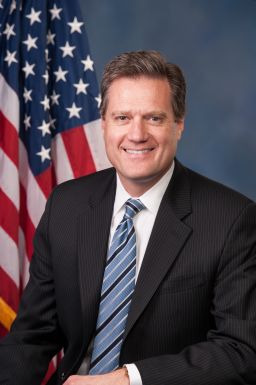Editor’s Note: Mike Turner, a Republican, represents Ohio’s 10th District in Congress. Niki Tsongas, a Democrat, represents the 3rd District of Massachusetts. The views expressed here are solely those of the authors.
In 2007, Lance Corporal Maria Lauterbach reported being raped by a fellow Marine. Several months later, he murdered her. During the eight months between Lauterbach’s alleged assault and her murder, she was forced to show up to work every day and serve alongside Cesar Laurean, who was convicted of her first-degree murder. According to the Columbus Dispatch, she was denied a request for a base transfer, and according to NBC and others, endured retaliation from peers and superiors, and consistently struggled to find support from a chain of command and system that favored apathy over action.


This tragedy brought to light devastating flaws in the military hierarchy and its justice system; flaws that we discovered fueled a predatory culture. But Maria’s story, and those of countless other alleged victims of military sexual assault, have also prompted historic changes to military policy (including new procedures for how the Pentagon investigates assault charges, new systems of reporting, and processes to shield victims from retaliation after reporting) and continue to influence the sustained push to change military culture for the better.
For the better part of a decade, we have worked with the military to identify root causes and institute safeguards that prevent sexual harassment and sexual assault and increase support for survivors.
But the organizational failures at the root of sexual harassment and assault are not unique to the military. Leaders abusing their authority; cultures that frequently close ranks to prevent negative attention; victims suffering retaliation; assailants protected by their colleagues; lack of institutional support; unclear or obstructed paths to justice – these are the same shortcomings now being revealed across industries, from entertainment to education; media to Congress. Sexual harassment and sexual assault in professional workplaces is widespread in America – but there are positive steps we can take.
While not an apples-to-apples comparison, many of the systemic changes instituted over the past decade within the military can be translated to the civilian sector.
Through our bipartisan work, victims of military sexual crimes now have a right to legal assistance through the military’s successful Special Victim’s Counsel Program. Military personnel are required to complete anonymous climate surveys to better assess the prevalence of sexually-charged issues. Victims of sexual assault may also now request an expedited transfer to another workplace.
Conviction of sexual assault in the military now requires automatic processing for dishonorable discharge. These major changes have had positive results for survivors and the military climate as a whole.
For example, according to a military-wide survey conducted by the Defense Department’s Office of People Analytics, 78% of victims who made reports were satisfied with their Special Victims’ Counsel/Victims’ Legal Counsel during the military justice process.
Similarly, private entities should, if victims request it, be encouraged to provide alternate places of work immediately to victims of sexual harassment or sexual assault. Responsible employers ought to provide victims no-cost legal support – you should not suffer financial hardship because you endured sexual harassment at work. Regular, anonymous climate surveys are useful tools every industry should adopt to determine the prevalence of harassment. And private institutions should clearly outline the professional consequences of sexually inappropriate or illegal behavior in the workplace.
While every institution must wrestle with how best to change its culture and do right by victims, the fight against sexual assault in the military has imparted lessons and created tools that have broader applicability.
A military unit succeeds or fails based on its members’ ability to trust and cooperate with the women and men standing beside them. As we look around the halls of Capitol Hill, there are places where our culture trends toward insularity over transparency. But, like in the military, trust is essential between members, staff and all those involved in making our government run.
Which is why Congress, in particular, has an opportunity to set a powerful example by implementing quick and effective changes, and there are bipartisan efforts already underway to do so. We co-sponsored H.R. 4396, the ME TOO Congress Act, which incorporates many of the aforementioned military-specific recommendations, including victims’ counsel, increased training, climate surveys, and enhanced responsibilities and authorities for the Congressional Office of Compliance to investigate sexual harassment and assault claims. This bill is an important next step now that Congress has mandated sexual harassment training for all members and staff.
Military sexual assault is far from a solved crisis and we have much more work to do to change the military culture that has enabled these crimes for too long. But systemic changes in the military have had an impact and can also serve as a model for how broader society moves forward from this watershed moment.


